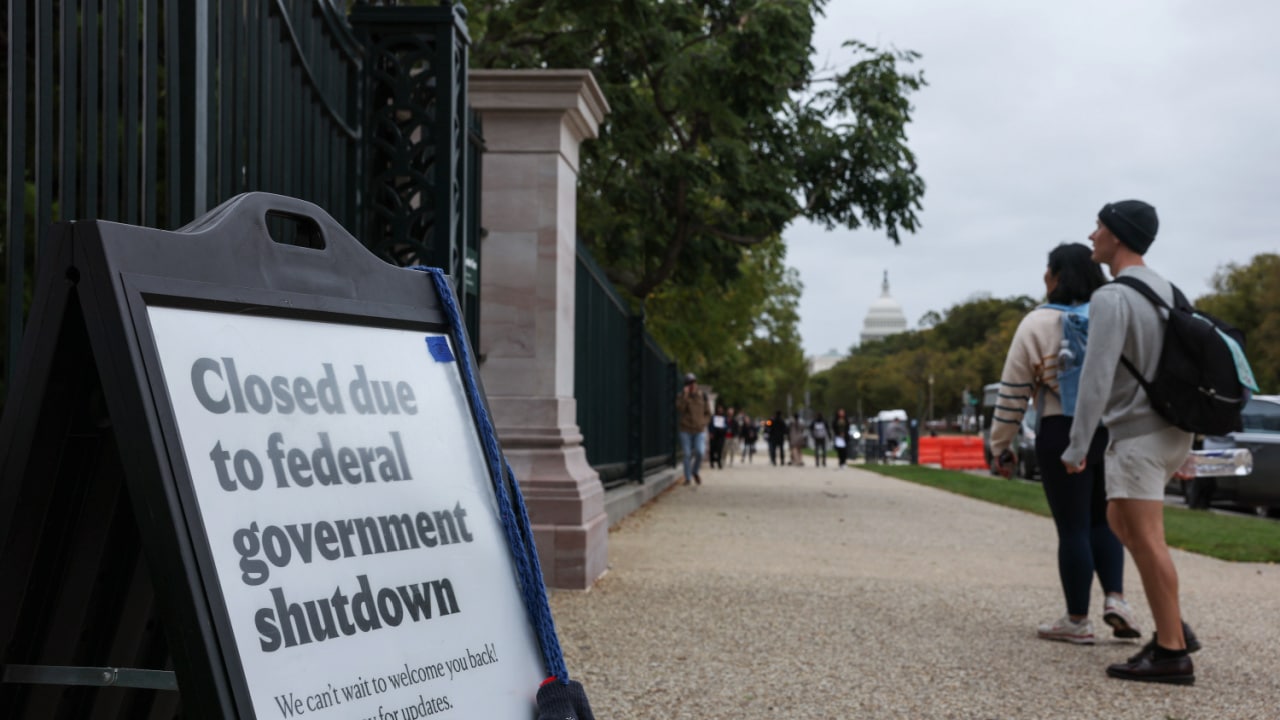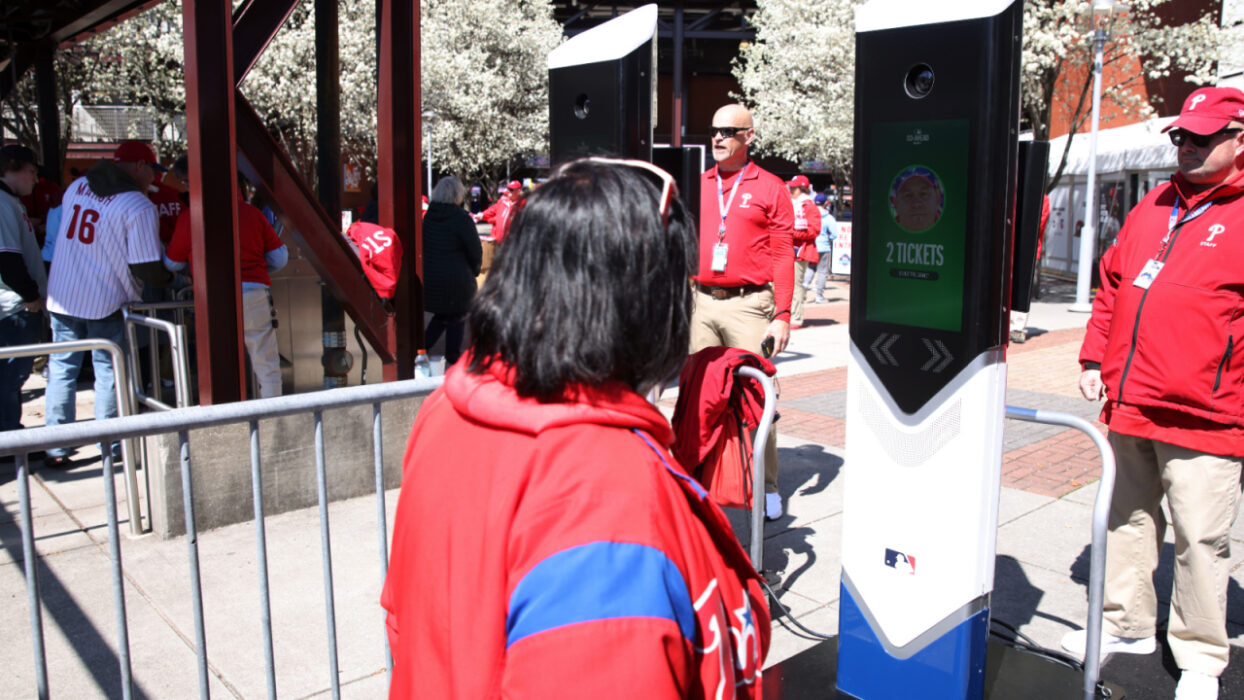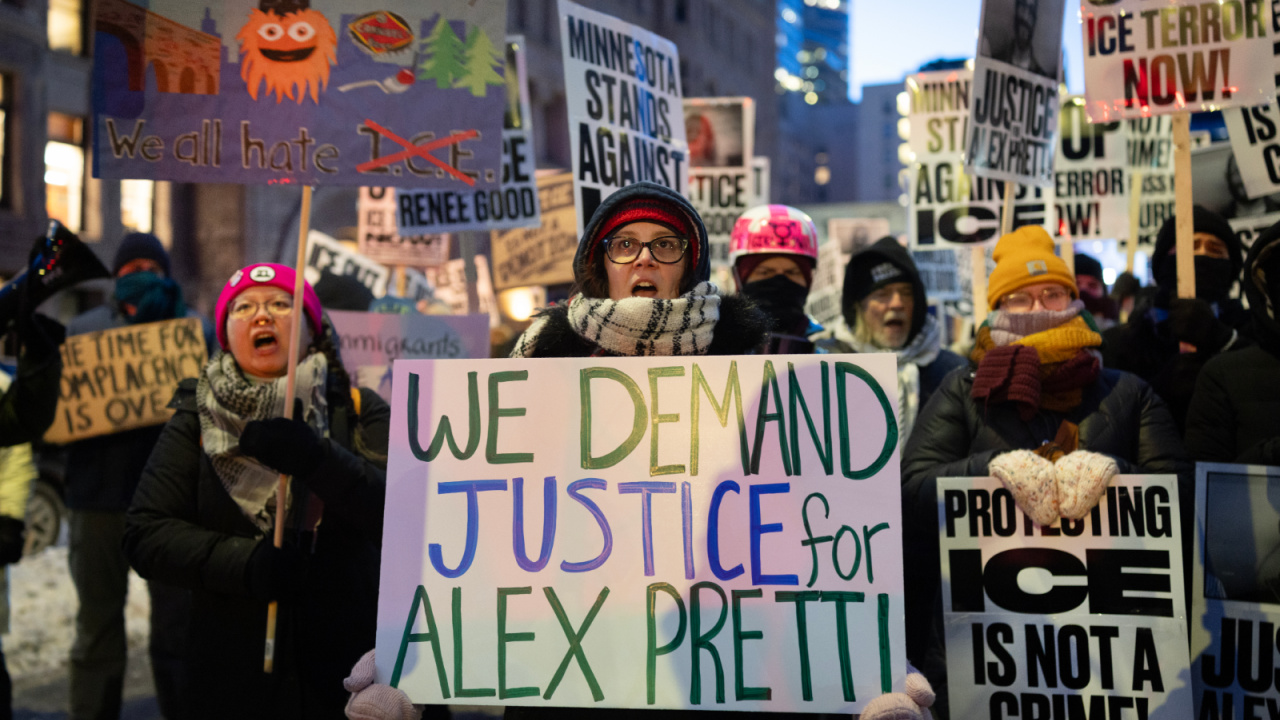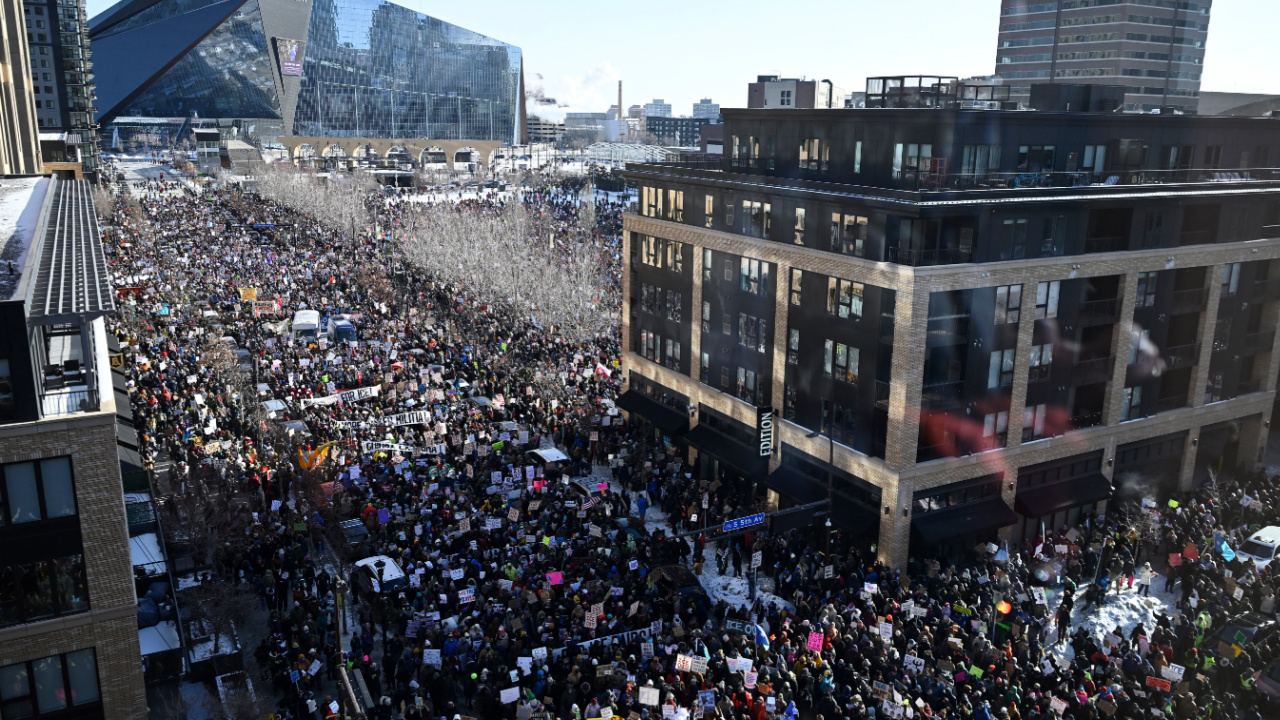
Latinos and Immigrants Are Feeling the Impact of the Government Shutdown in Real Time
The United States government has been closed for three weeks, and there doesn’t seem to be an end in sight. Senate Republicans continue to push the Housing funding bill that would cut Affordable Care Act (ACA) subsidies. The subsidies keep health insurance premiums affordable for millions of Americans. As the government shutdown drags on, here are ways that it is impacting the lives of Latinos and immigrants.
The government shutdown continues with no end in sight
The Senate is deadlocked, and the government is shut down over Affordable Care Act (ACA) subsidies. Democrats are rejecting the current House budget bill since it would cut subsidies that keep health insurance premiums affordable. After three weeks, there is no end in sight to the standoff over American citizens’ access to affordable health insurance.
House Minority Speaker Hakeem Jeffries (D-N.Y. 8th) told NPR’s “Morning Edition” that “it will become readily apparent to people throughout America why it is so important for Congress to act to extend the Affordable Care Act tax credits.”
It isn’t just the ACA subsidies that are at risk during the government shutdown. The lack of federal spending is impacting all parts of the U.S. government. Recently, the Supreme Court drastically scaled back its operations due to running out of funding. Latinos and immigrants are starting to feel the crunch of the government shutdown caused by a fight over access to affordable health care for American citizens.
Latinos in the federal workforce are being furloughed
More than 700,000 federal employees and contractors are to be furloughed as a result of the ongoing government shutdown. An additional 3 million active duty personnel and 750,000 National Guard and reserve personnel are at risk of having to work without pay, according to the Bipartisan Policy Center.
According to Voto Latino, 300,000 Latino federal employees are currently working without pay or have been furloughed. Latinos account for 10.5 percent of the federal workforce. This includes federal employees deemed essential, including the 86,000 Latino postal workers and 2,500 air traffic controllers.
Along with the uncertainty of not being paid currently, the White House released a memo setting the stage to deny backpay. Axios reports that a White House memo claimed that the “Government Employee Fair Treatment Act of 2019” has been misconstrued. Signed by President Donald Trump during a previous shutdown, GEFTA was interpreted as guaranteeing that federal employees receive backpay after a shutdown. Now, the Trump administration is making the case that not every federal employee furloughed automatically received backpay.
Food assistance if at risk for millions of Americans
According to the United States Department of Agriculture (USDA), 41.7 million residents are currently on the Supplemental Nutrition Assistance Program (SNAP). The ongoing government shutdown is threatening food assistance programs for 12.3 percent of the population. Latinos make up around 16 percent of SNAP beneficiaries due to being disproportionately impacted by food insecurity.
UnidosUS highlighted the imbalance when it comes to food security. In addition to suffering from food insecurity, a significant number of eligible Latinos struggle to access the necessary assistance. The lack of culturally responsive and linguistically equitable resources adds to this discrepancy.
According to The Texas Tribune, 3.5 million Texans could lose access to their food assistance if the government shutdown continues. In California, 5.5 million people could lose access to their food assistance, according to the LA Times.
The government shutdown is pausing naturalization ceremonies
People who have been through the immigration process, paid large fees, and endured several interviews are being turned away from naturalization ceremonies. There have been multiple reports of canceled naturalization ceremonies as a result of the government shutdown, including in Virginia and California.
According to a statement issued by the United States District Court, Central District of California, the government shutdown is impacting court services. All staff are on unpaid status after the Supreme Court announced that the federal court system was out of funds starting Oct. 20, 2025.
There is a chance that non-detained immigration cases will be paused and rescheduled. According to the American Immigration Council, this is what happened during the last government shutdown in 2019. A prolonged shutdown totalling 35 days forced the courts to reschedule 80,000-94,000 cases.
ICE raids will continue during the shutdown
President Trump, in line with his mass deportation agenda, has told the Department of Homeland Security (DHS) that ICE agents will be paid. Federal law enforcement are deemed essential and in previous shutdowns they would normally go without pay. However, President Trump announced that about 70,000 federal law enforcement will be paid a “super check” on Oct. 22, 2025. The check will pay for the days already accrued during the government shutdown and the following pay period.
The Trump administration’s mass deportation plan is continuing unimpeded during the shutdown. Immigration raids across the country have been rapidly increasing the number of people being detained. According to the CATO Institute, 65 percent of the people immigration agents have detained had no criminal record. That’s 133,687 people. More than 93 percent of detainees never committed a violent crime.
With no end in sight to the government shutdown, it is unclear when operations will return to normal.
This story is developing and we will bring you updates when we learn more.




